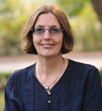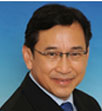
2020 Learning
2020 Learning
Over the next decade learning professionals and educators will experience the most transformation of learning in any single decade in history. Social, generational and technology shifts are causing a disruption, changing forever how we deliver and receive learning. Teaching and learning will be less structured, more informal, self-enabled, interactive and collaborative. Our learning world will rapidly become virtual, simulated and mobile. Students and learners will demand new cultures of learning, including robust portals, instant access to knowledge and a distributed model of access to where and how they get their knowledge. Learning leaders have started their journey to embrace new ideas and technology. But it is time we look at them with a unified approach. Unified learning makes communication instant, collaboration continuous, learning accessible, personal and meaningful for the 21st century learner.
In this fast paced opening session, HR and Learning Futurist Rick Von Feldt will describe the future unified landscape of a 2020 learning environment. He will describe the dramatic shifts in how learners will create, communicate and consume knowledge and skill. We will look at the latest learning transformations, including mobile learning, open source and informal knowledge, multi-media learning, social platforms and portals and the impact of the gamification of learning. We look at best in class example of forward thinking universities and companies already embracing the future of learning. Rick will give us a look at the 12 learning principles for a 2020 learning model and make predictions on how different things will be by 2020.
Bio:
Rick Von Feldt is a global learning and human resource futurist and executive. He has been responsible for learning and human resource functions at Gillette, Dell and Hewlett-Packard. Recently, he was global vice president of learning for Hewlett-Packard's Enterprise organisation, responsible for 180,000 learners world-wide. In 2009, he became a partner at Future Workplace - an organisation focused on implementing innovations to attract, develop and keep talent. He is a writer under the name HR Futurist. Rick worked in regional HR and training roles in Asia from 2000 to 2007. Recently he led the Social Learning Bootcamp at IESE University in New York. He is a lecturer at the Stanford Graduate Business School. He is a lecturer at the Stanford Graduate Business School. He travels the world learning and helping others learn about the future of learning and human resources.
Facilitator, CLO Innovation Network

Building institutional capacity for the use of social media
Building institutional capacity for the use of social media
Hong Kong has a rapidly changing curriculum context where a process of educational reform has been working through the school system and is about to reach the universities. In 2012, all universities in Hong Kong will change to a normative four-year undergraduate curriculum. The Chinese University of Hong Kong (CUHK) is a traditional, research-intensive university, and the consideration of the implications of Hong Kong’s educational reform has sparked significant internal debate and reflection about the role of a university in a globalized world in the 21st century. The role of innovative technologies is central to these present debates. At present, there is only a limited uptake of social media in teaching and learning. As part of our planning for 2012, eight teachers at CUHK who have used a range of social-media strategies in their teaching were interviewed about the successes and challenges of their experiences. As a result of these interviews a tentative implementation strategy has been developed for action by our eLearning Service. The substance of this keynote address is reported in: McNaught, C., Lam, P., Kwok, M., & Ho, E. C. L. (in press). Building institutional capacity for the use of social media. In B. White, I. King & P. Tsang (Eds.). Social-media tools and platforms in learning environments: Present and future. Heidelberg: Springer.
Bio:
Carmel McNaught is Director and Professor of Learning Enhancement in the Centre for Learning Enhancement And Research (CLEAR) at The Chinese University of Hong Kong. Since the early 1970s, Carmel has worked in higher education in Australasia and southern Africa in the fields of chemistry, science education, second language learning, equity in education, eLearning, and higher education curriculum and policy matters. Current research interests include evaluation of innovation in higher education, strategies for embedding learning support into the curriculum, and understanding the broader implementation of the use of technology in higher education. She is actively involved in several professional organizations and is a Fellow of the Association for the Advancement of Computers in Education; is a university quality assurance auditor for both Australia and Hong Kong; is on the editorial board of 12 international journals; and is a prolific author; recent publications and activities can be viewed at http://www.cuhk.edu.hk/clear/people/Carmel.html
Centre for Learning Enhancement and Research
The Chinese University of Hong Kong

Social Media: Transforming our Digital Future
Social Media: Transforming our Digital Future
Social media tools, such as Twitter, Facebook, and YouTube, are changing the way that people across the globe communicate, share ideas, and build networks. Just over a year ago, Google lost its position as the most visited site on the web to the social media phenomenon, Facebook (see Wall Street Journal, March 14th, 2010). The interest in social media is quickly increasing, and as with many other technologies, the educational community is looking to harness the potential of these technologies to overcome challenges in the classroom and on campus. Not only do social media have the potential to improve learning in the classroom, they will be transformational for the future of education. This session will characterize the transformational potential of social media in education.
Bio:
Tanya Joosten is the Associate Director of the Learning Technology Center at the University of Wisconsin – Milwaukee where she manages several emerging technology projects, including the University of Wisconsin System social media emerging technology grant project. She has over a decade of experience teaching with and researching social media. Most recently, her work on social media has been highlighted by The Chronicle of Higher Education, Ed Tech Magazine, eCampus News, and EDUCAUSE Quarterly.
Tanya's book on social media for teaching and learning by Jossey Bass is anticipated in early 2012. She leads the EDUCAUSE social media constituent group and serves as a member on the EDUCAUSE Evolving Technologies steering committee, Sage Publication Digital Media advisory board, EDUCAUSE Quarterly (EQ) review committee, and the Sloan-C Blended conference steering committee.
Milwaukee Learning Technology Center (LTC)
University of Wisconsin-Milwaukee

Singapore’s ICT Master Plans and its implications on Higher Education
Singapore’s ICT Master Plans and its implications on Higher Education
In 1997, the Ministry of Education, Singapore, launched its first ICT (Information and Communication Technology) Master Plan for education. Its aim, at that time, was to equip schools with technology to enable teachers and students to leverage on the use of technology for teaching and learning. Since then, MOE has implemented two other Master plans. Currently, MOE is in the mid-term of its 3rd ICT Master plan for education (MP3). One of the objectives of MP3 is to strengthen students’ use of ICT to build up their competencies for self-directed learning. Undergraduates, who are entering into our local higher-education institutions, have experienced these ICT initiatives. This presentation will give an overview of the Master Plans, its impact on students’ learning, and the implications for teaching in higher-education institutions.
Bio:
Dr. Philip Wong, Associate Professor, is currently the Associate Dean, Pedagogical Development and Innovations, Office of Teacher Education, National Institute of Education, Singapore. He taught in secondary and junior college levels before joining the institute in 1980 and has been a teacher educator since then. He obtained his Ph D in Curriculum and Instructional Systems from University of Minnesota, U.S.A. He has participated and led a number of funded research and evaluation projects and has published widely in a number of refereed journals.
Dr. Wong also acts as a consultant to various local and international IT initiatives in education projects and has worked for World Bank, UNESCO, and ASEAN Foundation. He is responsible for the design and creation of the learning scenarios in Classroom of the Future showcase (COTF Live!), a project in collaboration with Microsoft, IDA and NIE. Currently he is an advisor to Microsoft World Wide Future Schools initiative, Innovative Schools Program.
Office of Teacher Education
National Institute of Education (NIE)

Learning for the New Mobile Society
Learning for the New Mobile Society
The way that we live, work, play, and learn is being impacted by the increasing mobility of our society. For mobile innovators, it is our responsibility to design for the needs of our changing audience. In this session we’ll examine key trends, design techniques, and technologies that are fast emerging to meet the challenges and changes of today and tomorrow. How do we design for stolen moments of learning, rather than entire classes? We’ll explore world class examples of mobile (m)Learning from academia, government and industry. Learn how to stretch the boundaries of learning technology to include not just eLearning but mLearning. See how companies like 3Com, Vodafone, Nokia, Symbol and others are delivering value through mobile learning content. Explore advanced concepts like mobile learning games and simulations, location awareness, transcoding, mobile social networking and collaboration.
Bio:
Dr. David Metcalf is a senior researcher at the University of Central Florida’s Institute for Simulation and Training. Dr. Metcalf explores leading edge innovations in learning. Specific areas of focus include: learning business strategy, performance measurement, operational excellence, outsourcing, blended learning, games/sims and mobile learning. Dr. Metcalf was formerly the Chief Learning Technologist at RWD Technologies. Dr. Metcalf joined RWD with the sale of his NASA Kennedy Space Center laboratory spin-off company- Merrimac. Prior to spin-off, he was the Lead Multimedia Designer at NASA KSC. He is the author of several recent works including: Blended eLearning: Integrating Knowledge, Performance Support and Online Learning, “Operational Excellence” in Elliott Masie’s book, and mLearning: Mobile Learning and Performance.
Mixed Emerging Technology Integration Lab (METIL)
Institute for Simulation & Training

How Web 2 can help educators find and share great eTeaching ideas
How Web 2 can help educators find and share great eTeaching ideas
One of the great goals of e-learning has been to share digital resources so that many educators can benefit from the good ideas of individuals. Early work in this field focussed on educational metadata and repositories of Learning Objects, but the rise of Web 2 approaches has provided new ways to encourage sharing and adoption of resources.
For many educators, finding an interesting digital resource is driven more by the recommendations of their peers than descriptive metadata, and so the social dimension of the Web 2 can play a key role in helping educators find useful resources. In addition, learning itself has taken on a stronger collaborative dimension with the rise of Web 2 tools, and developments in Learning Design foster the sharing of collaborative learning activities, not just content.
This presentation will provide an overview of the changing landscape of educational sharing and the role of Web 2, with a case study based on different experiences from LAMS and the LAMS Community over five years.
Bio:
James is the Director of the Macquarie University E-Learning Centre of Excellence (MELCOE) in Sydney, Australia, and also a Director of the LAMS Foundation and of LAMS International Pty Ltd. James is known nationally and internationally for his research into and development of innovations in elearning, and technical standards. He has directed and contributed significantly to e-learning projects such as the Meta-Access Management System project (MAMS), The Collaborative Online Learning and Information Services project (COLIS), and the Learning Activity; Management System project (LAMS).
Director of the LAMS Foundation and of LAMS International Pty Ltd
